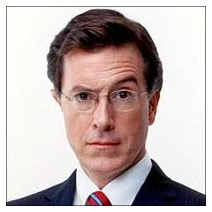 Comedians Jon Stewart and Stephen Colbert, whose programs were once among the most viewed on YouTube, were requested by the video site to give testimony in legal proceedings as it fights a $1 billion lawsuit by Viacom Inc, according to court filings.
Comedians Jon Stewart and Stephen Colbert, whose programs were once among the most viewed on YouTube, were requested by the video site to give testimony in legal proceedings as it fights a $1 billion lawsuit by Viacom Inc, according to court filings.
Viacom sued Google and YouTube in March after failing to reach a distribution agreement. Viacom said YouTube carried the entertainment company's programs on its site without permission.
At the time, Viacom said its Comedy Central shows were among the most viewed video clips on YouTube's service overall, which allows users to upload material. Ahead of the suit, Colbert had even urged fans to make him a star on sites like YouTube.
This seems to open up the possibility for a defense that responsibility for the large number of clips from those shows lies not with YouTube, but rather with representatives of the shows themselves, who not only condoned, but even encouraged viewers to post them to the viral video site.
Given Viacom's right to challenge the selection of Stewart and Colbert as witnesses, it's also possible the intent is simply to point out that some in the entertainment business view YouTube as a free marketing outlet.
Colbert's statements on his show, apparently with the expectation that video posted on YouTube would increase viewership, would seem to cast some doubt over any claims of financial damages.
Certainly Colbert seems to have an understanding of the power of motivated viewers. In August 2006 his on-air suggestion that viewers could replace reality with so-called truthiness, the feeling of truth that doesn't rely on facts, resulted in Wikipedia locking the entry for Elephant.
Maybe Google's lawyers are really just trying to point out that Viacom's supposed facts are really just truthiness in disguise.
Sources:
PC World
Ars Technica











